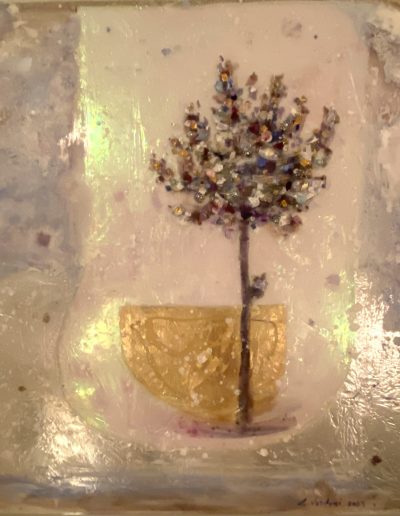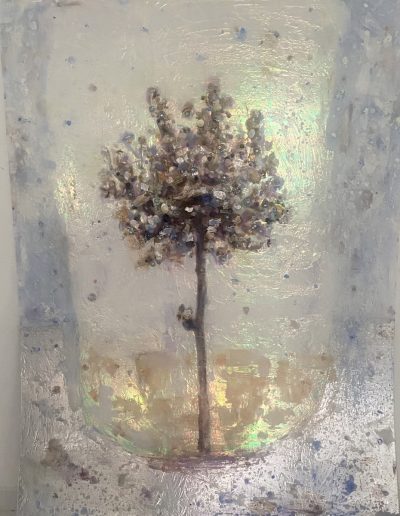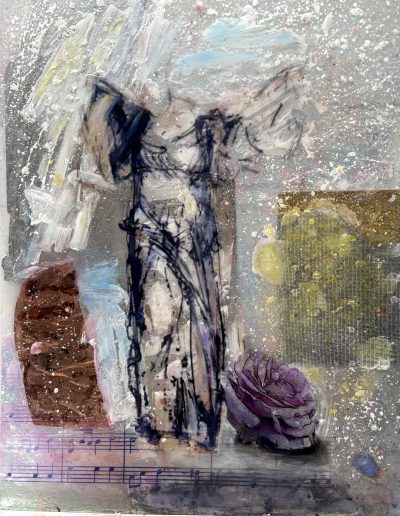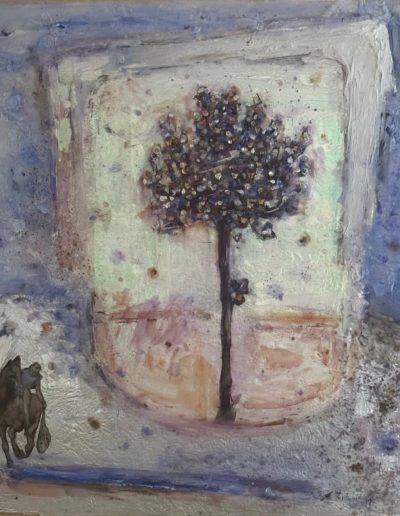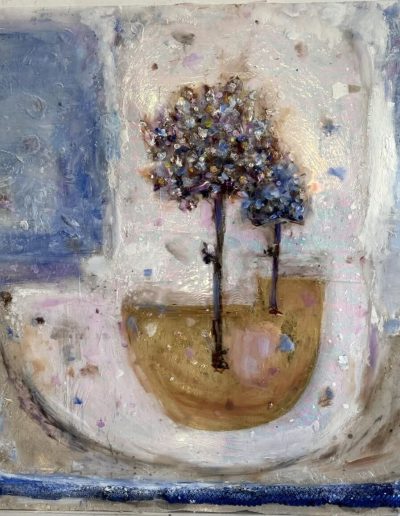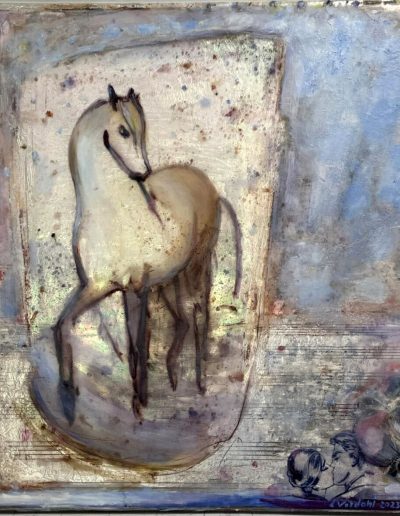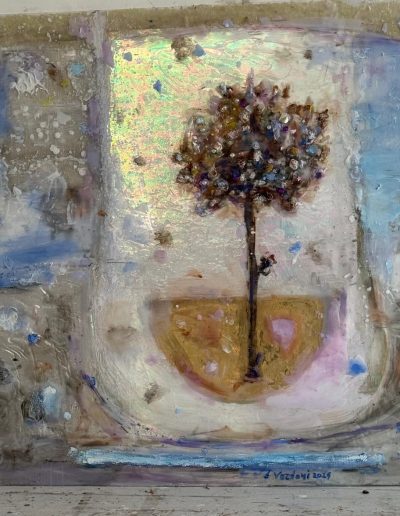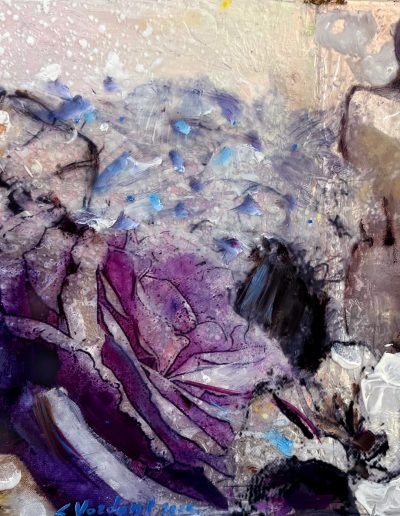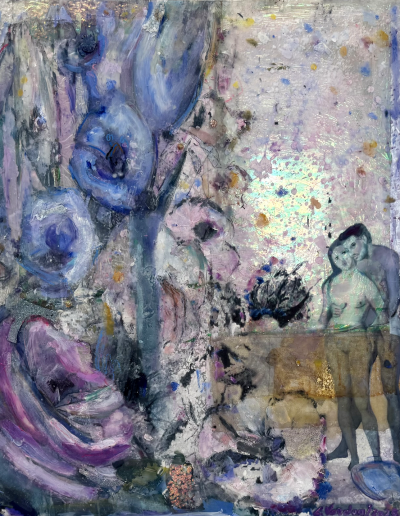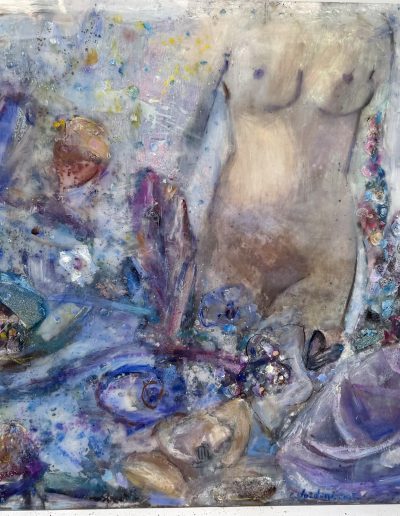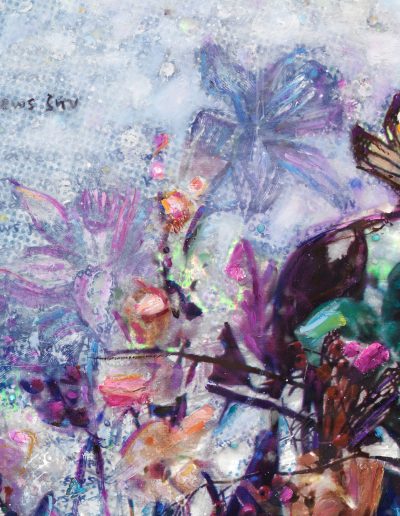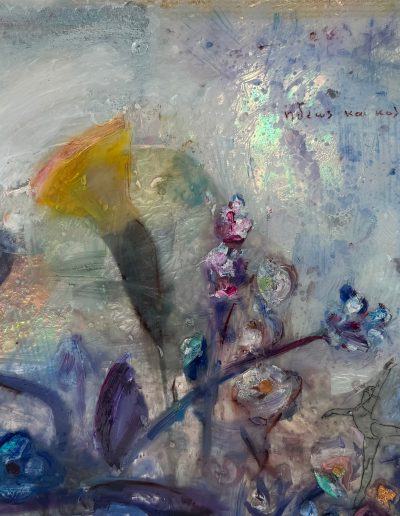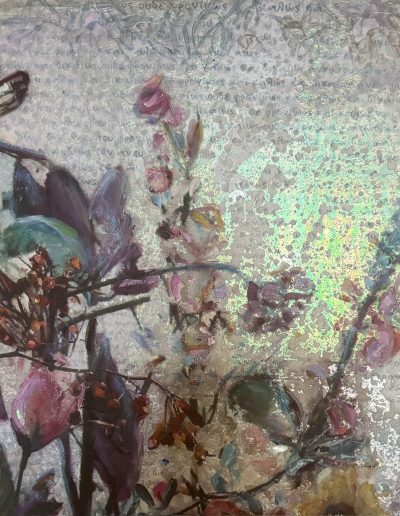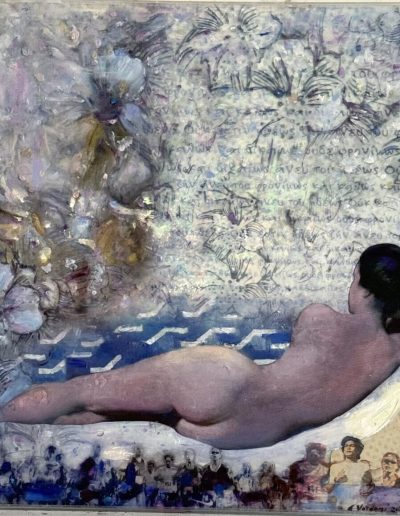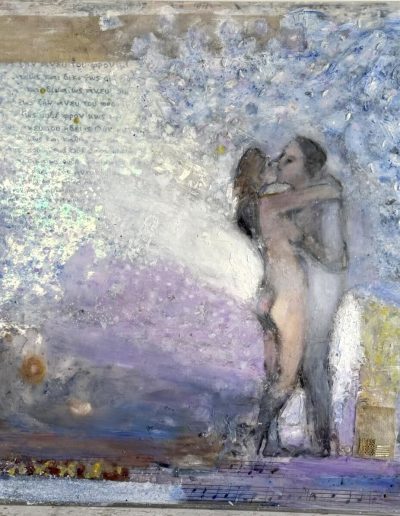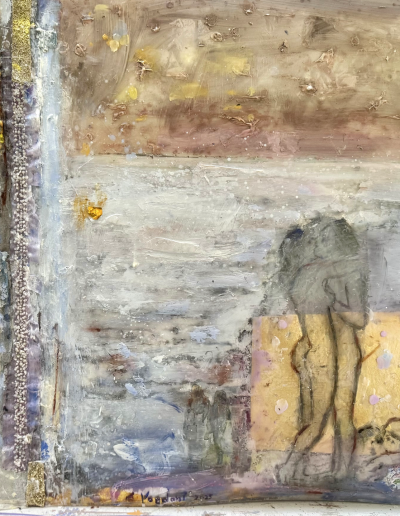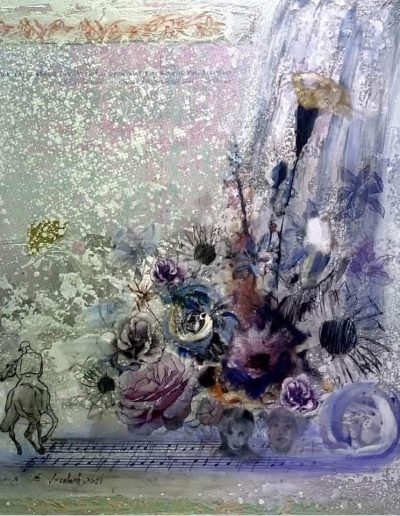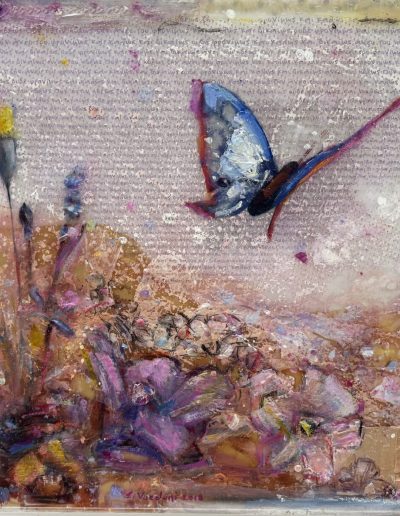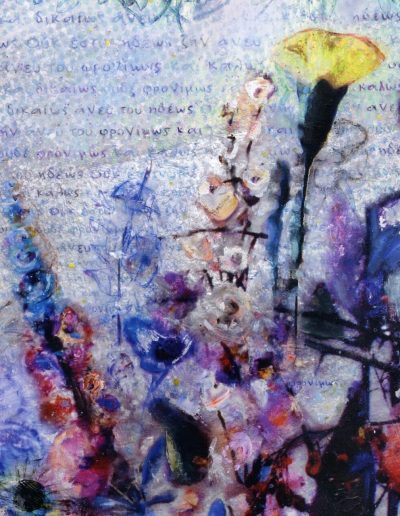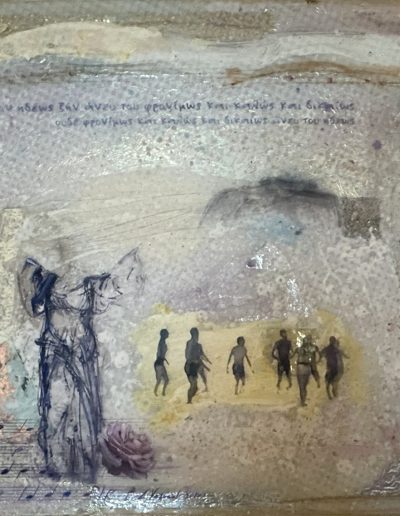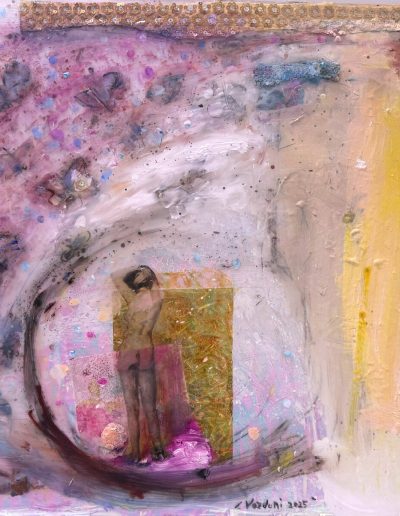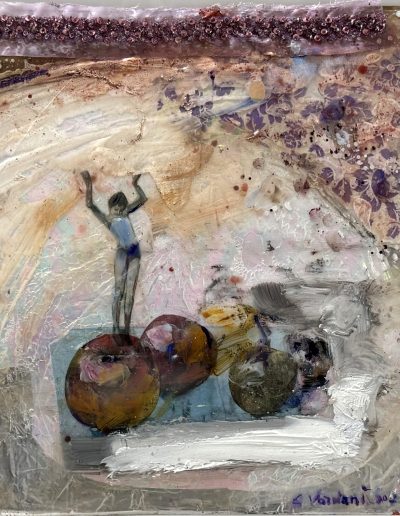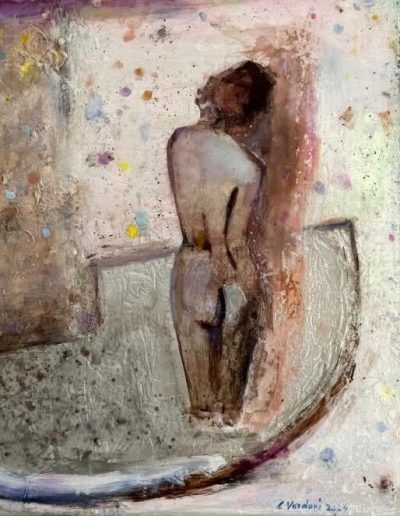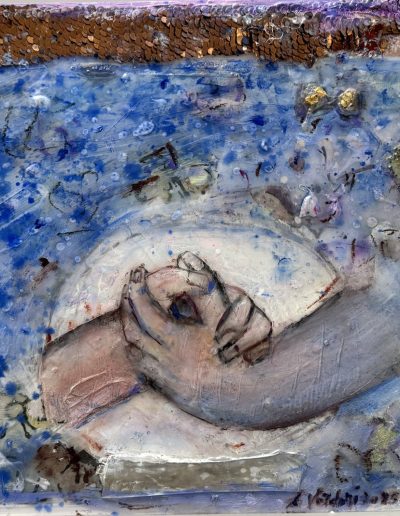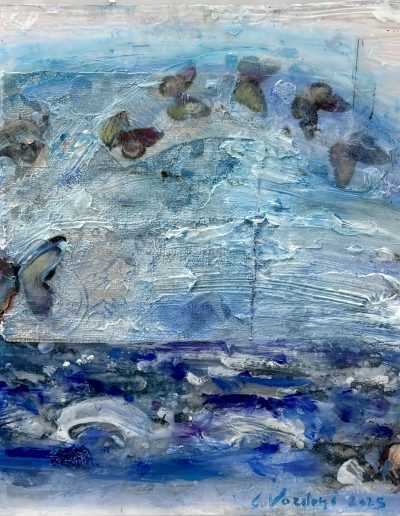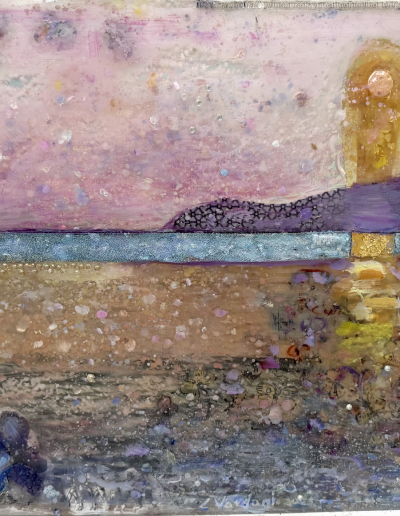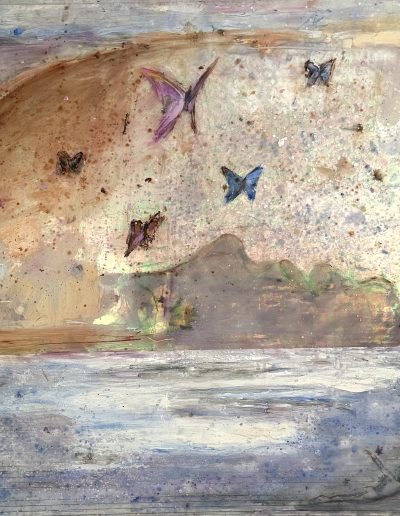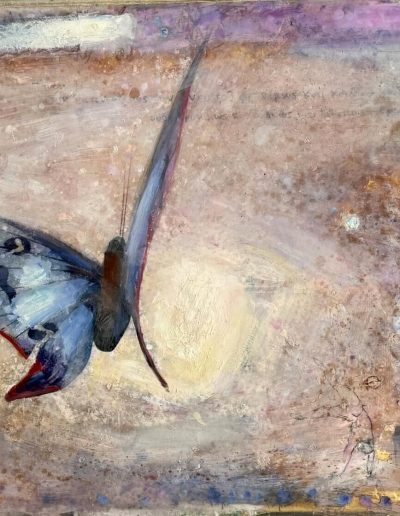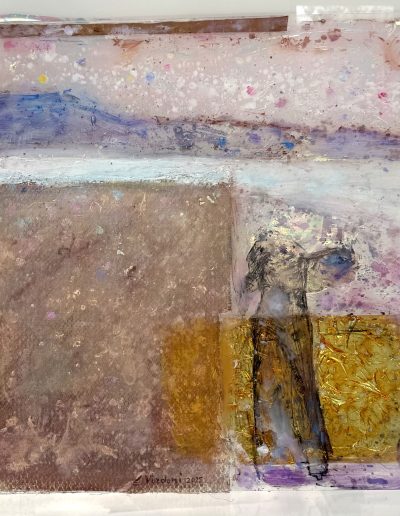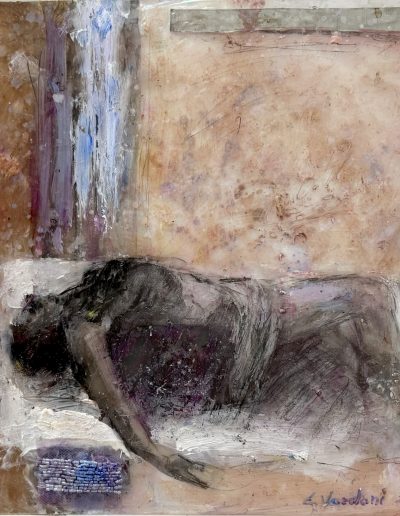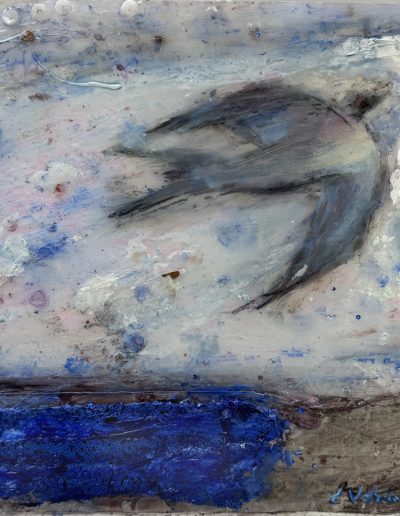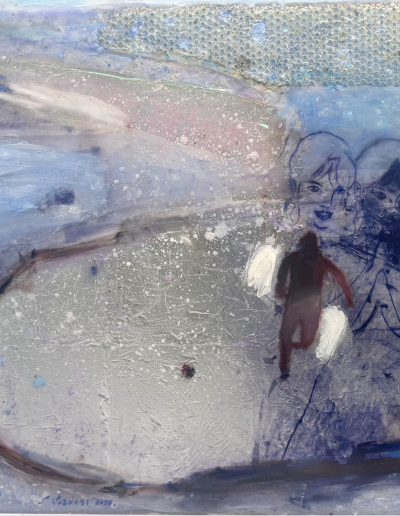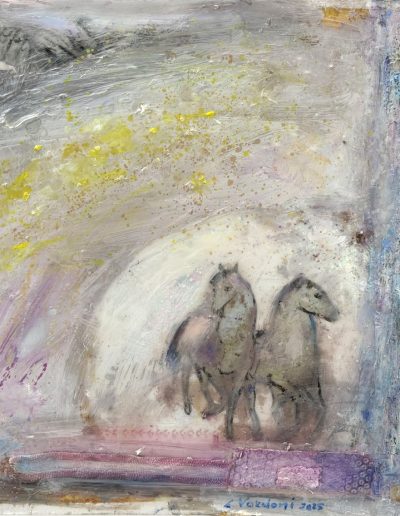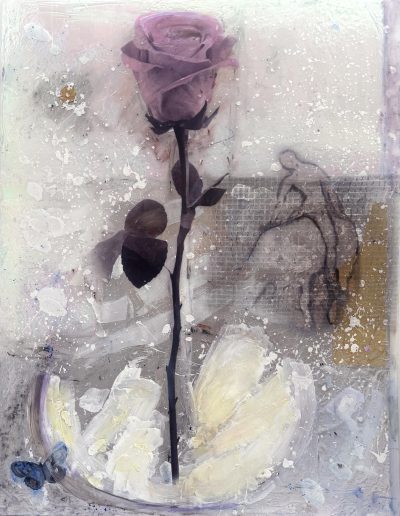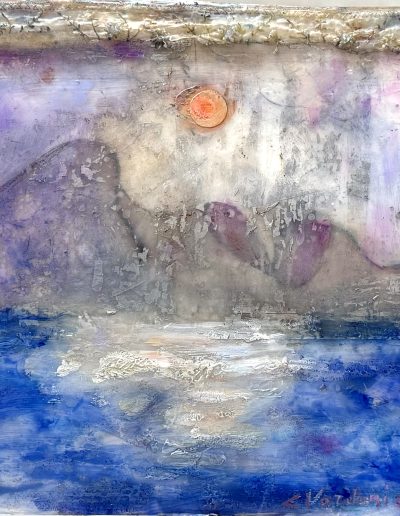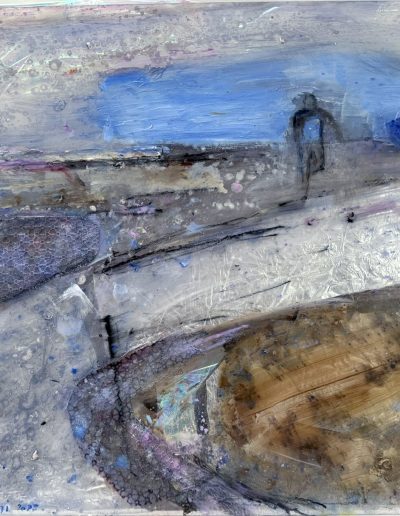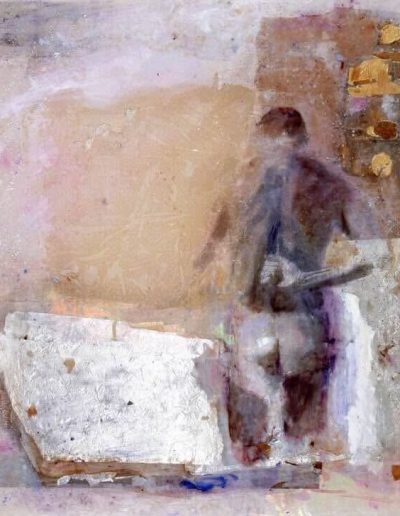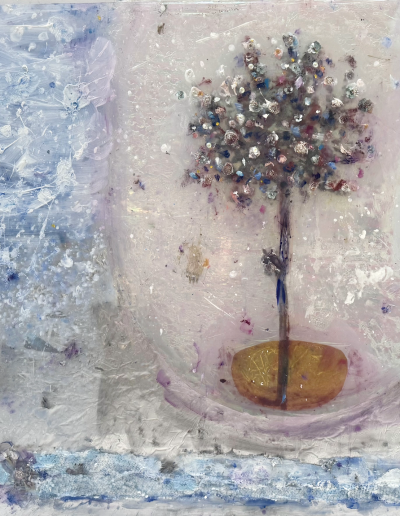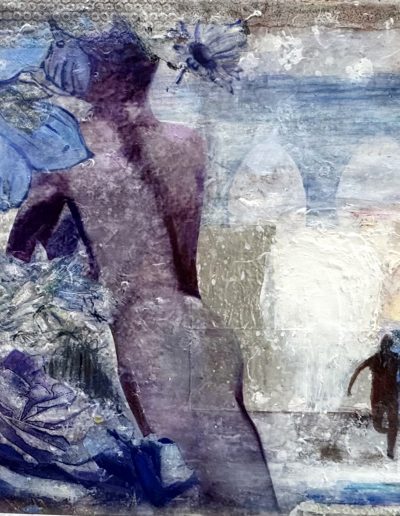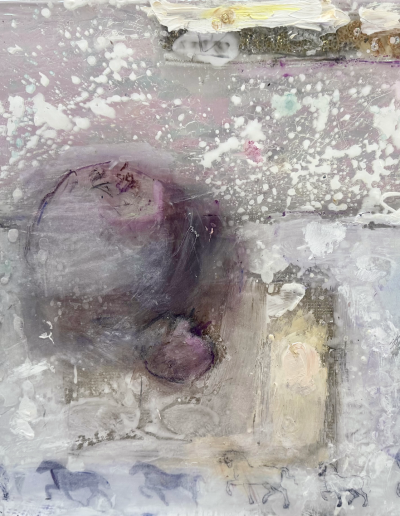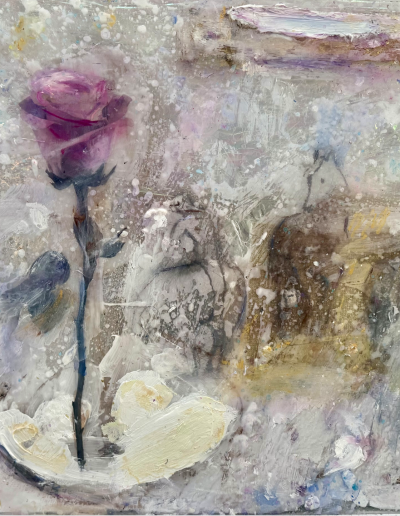Erietta Vordoni
Among the icy winds accompanying the beginning of our century on the threshold of dream for-saken nights, the painting of the Erietta Vordoni, archieologist of lost complicities, traps sentiments, sumptuous as holy banners, familiar as votaries.
Jean-Louis Pradel Art historian
Professor at the Ecole Nationale
Voroni’s work nourished by her own poet- ical and metaphysical reflections eloquent- ly evoke life’s profundities. Life in its infinite. expressions with its plurality of forms, in its evanescent moments.
Pierre Chaigneau
Ex-Curator of the Nice Museum of Modern and Contemporary Art, France
Eriettas Vordoni work is a hymn to the fragility of touch and the aestheticism of painting. She does not paint descriptions and narra- tives, but spiritual conditions, feelings and impressions. She speaks about the imma- teriality of life, the beauty of ephemerality and the value of intimacy. A work that invites us to engage in meditation.
Florent Bex
Honorary Director of the Antwerp Museum of Contemporary Art
In these pictures, Vordoni seems to be making quite fundamental points about art’s role in the self’s recognition of a certain quality of existence that transcends all forms of worldly aspiration. To have any sense of being integrated with the cosmos, one must also possess an acute feeling of scale, a state of mind in which the measure of the human form acts as a kind of central reference point from which all acts of contemplation emerge outword. Throughout history, art has reminded us that this state of balance does not usually come automatically, but requires a certain effort on our part – – an exertion of will which differs from place to place, and from one era to the next. As if to uphold these ambigious standards, Erietta Vordoni’s work manages to replicate the very moment in which this balance is achieved, safeguarding it for some point in the future, when we will need to be reminded once more.
Dan Cameron Senior Curator at the New Museum in New York
“The Garden of Epicurus”
Art Installation by Errietta Vordoni
We live in an era where everything seems suspended in the air, ready either to be reborn or to dissolve. In the midst of wars, people experience daily insecurity, there is a severe economic crisis, and the world has sunk into dead ends.
There is a crisis of ideas and values, and we have lost our axis.
The same happened after the death of Alexander the Great in 323 BC, throughout the then-known world. Around 306 BC, the philosopher Epicurus began teaching in a large garden in Kerameikos, Athens. This garden was open to everyone, regardless of their social or financial status. Epicurus believed that philosophy had to be accessible to all, a place where they could study and converse together, regardless of origin.
One of his fundamental principles was: “It is impossible to live pleasantly without living wisely, nobly, and justly” — and the reverse is also true: “He who is wise, noble, and just lives a pleasant life.”
He focused on happiness that arises from kindness, morality, and simplicity, and advised us to respect Nature, Humanity, and Friendship, while attuning ourselves to the positive vibrations of the soul.
The work we propose will be painted on transparent surfaces, to highlight the fragility of our times. It will marry contrasting materials, such as metals and enamels changing color depending on the light, with fabrics like velvet. A unique world full of contrasts — just like our daily lives — will be shaped.
In this ideal space, a large painted garden will reveal the magnificence of Nature. Harmonized people and animals will inhabit it, while voices will resonate with Epicurus’ saying in Greek, French, English, and Italian, accompanied by sounds of nature — birdsong and rustling trees.
The work will be painted in oils, to return to human scale and timeless artistic values. The central piece will measure 2.80 m x 14.50 m, while the side works will measure 1.62 m x 6.00 m. Within the work, letters with Epicurus’ sayings in Ancient Greek will appear in contrast to the vivid pictorial space. These writings will also flow across the floor in Greek, English, French, and Italian.
Upon entering the darkened hall, the illuminated words will first appear on the floor. Then, a spotlight will travel from left to right, gradually lighting the artwork (duration: 2 min). Afterwards, projectors will illuminate the entire piece (duration: 5 min). While the whole work is visible, the whispers of Epicurus’ words and the forest’s sounds will continue (duration: 5 min).
Believing that Epicurus is still profoundly relevant, I propose this Art Installation.
![]()
